Will the baby look like me if I do IVF with Egg Donor?
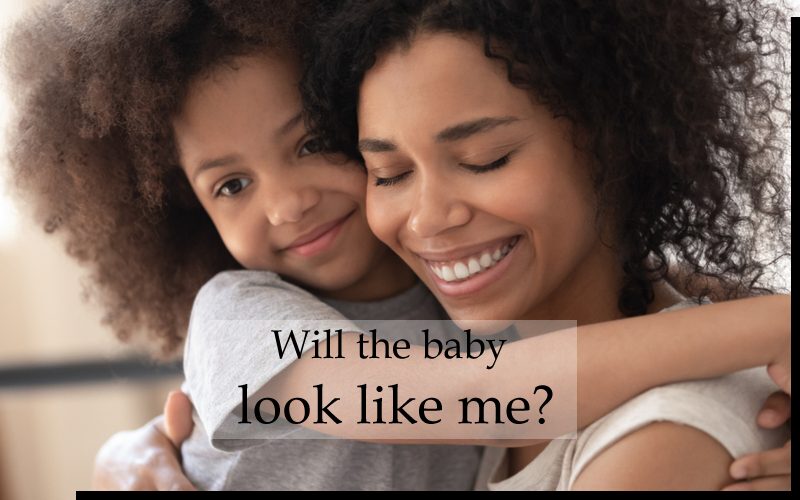
In today’s world, advancements in reproductive medicine have opened up new possibilities for individuals and couples facing fertility challenges. One such option is In Vitro Fertilization (IVF) with egg donor, a procedure that has helped many realize their dreams of parenthood. However, one of the common questions that arise is, “Will the baby look like me if I do IVF with an egg donor?”
This article aims to explore the intricate interplay between genetic inheritance and the appearance of a baby born through IVF with egg donor. We’ll delve into the complex mechanisms that determine physical traits and shed light on the factors that contribute to a baby’s resemblance to their intended parents.
For women considering egg donation, a common concern revolves around the potential resemblance between themselves and the resulting child. However, they should not forget that their husband is genetically related to the baby.
Get in touch for FREE SURROGACY CONSULTING:
Mobile: +91-8800481100 ( WhatsApp, Line, Viber)
Email: neelam@ivfconceptions.com
Web: www.completesurrogacy.com
Key Takeaways
 IVF with an egg donor is a reproductive procedure where a woman’s eggs are fertilized with sperm outside the body, and the resulting embryos are transferred into the intended mother’s uterus.
IVF with an egg donor is a reproductive procedure where a woman’s eggs are fertilized with sperm outside the body, and the resulting embryos are transferred into the intended mother’s uterus.- Genetic inheritance plays a significant role in determining a baby’s appearance, but environmental factors also contribute.
- The egg donor’s genetic makeup influences the physical characteristics of the resulting baby, including traits like eye color, hair color/texture, and facial features.
- However, the intended father’s genetic contribution and the gestational environment provided by the intended mother also impact the baby’s appearance.
- Epigenetic factors, such as lifestyle choices and prenatal care, can further modify the expression of inherited traits.
What is IVF with an egg donor?
IVF with an egg donor is a fertility treatment option that involves using eggs donated by another woman, typically a younger individual, to create embryos once donor eggs are fertilized with the intended father’s sperm. These embryos are then transferred into the intended mother’s uterus, where they implant and develop into a baby.
Intended Parents use the IVF egg donation procedure for various reasons, including:
 Diminished ovarian reserve: When a woman’s ovaries are unable to produce viable eggs for fertilization due to age or medical conditions.
Diminished ovarian reserve: When a woman’s ovaries are unable to produce viable eggs for fertilization due to age or medical conditions.- Genetic disorders: If there is a risk of passing on genetic disorders or conditions to the offspring.
- Repeated IVF failures: In cases where previous IVF attempts using the intended mother’s own eggs have been unsuccessful.
The process of IVF with an egg donor involves several steps, including:
- Donor selection: Intended parents choose an egg donor based on factors such as physical characteristics, medical history, and genetic screening.
- Ovarian stimulation and egg retrieval: The donor undergoes hormonal treatment to stimulate the production of multiple eggs, which are then retrieved through a minor surgical procedure.
- Fertilization and embryo culture: The retrieved eggs are fertilized with the intended father’s sperm in a laboratory setting, and the resulting embryos are monitored for development.
- Embryo transfer: One or more embryos are transferred into the intended mother’s uterus, where implantation and pregnancy may occur.
Additional resources for IVF with egg donor
Infographic- How Does the IVF Egg Donor Process Work?
Can I use both an Egg Donor and a Sperm Donor for my Surrogacy Journey?
Infographic- How Does the IVF Egg Donor Process Work?
How much does Donor IVF cost?
The cost of IVF with an egg donor can vary significantly depending on several factors, such as the location, fertility clinic, and specific services required. However, here’s an approximate breakdown of the typical costs involved:
Egg Donor Compensation:
- $5,000 – $10,000 (United States)
- $3,000 – $5,000 (Canada)
- £5,000 – £8,000 (United Kingdom)
IVF Cycle:
- $12,000 – $20,000 (United States)
- $10,000 – $15,000 (Canada)
- £5,000 – £8,000 (United Kingdom)
Additional Expenses:
- Medication: $3,000 – $5,000
- Fertility clinic fees (e.g., embryo transfer, freezing, storage): $1,000 – $3,000
- Legal fees: $1,000 – $3,000
- Travel and accommodation (if required): Varies
Total Estimated Cost:
- United States: $20,000 – $40,000
- Canada: $15,000 – $25,000
- United Kingdom: £12,000 – £20,000
It’s important to note that these costs are estimates and can vary significantly based on the specific circumstances and location. Some countries or regions may offer partial or full coverage for IVF procedures through public healthcare systems or insurance plans, which can substantially reduce out-of-pocket expenses.
Additionally, fertility clinics may offer various financing options or payment plans to help alleviate the financial burden. It’s advisable to discuss the costs and available options with the clinic beforehand to plan accordingly.
What factors to consider when choosing an ideal egg donor for you?
When choosing an egg donor for your IVF treatment, there are several important factors to consider. Here are some key points to keep in mind:
- Medical History and Screening
- Age and Fertility Potential
- Physical Characteristics
- Educational Background
- Personality and Interests
- Proven Fertility
- Donor Anonymity Preferences
- Legal and Ethical Considerations
- Personal Values and Preferences
When selecting an egg donor, intended parents should review the donor’s comprehensive medical history, age, physical traits, educational achievements, personality details, and proven fertility record. Considerations like donor anonymity, legal implications, and personal values also play a crucial role in making an informed decision. Working closely with a reputable fertility clinic or agency can help navigate this process effectively.
Additional Guides for Surrogate Mother:
Find a Surrogate Mother With or Without an Agency
In Which Country I Find Low-Cost Surrogate Mothers (in 2023)?
How can I Find a Surrogate Without Agency
What is the Age Limit for Surrogate Mothers
How Much Does Surrogacy Cost Using Family Member
How to Start the Gestational Surrogacy Process? A step-by-step guide for Beginners
How Much Does Surrogacy Cost? Everything You Need To Know
Genetic Inheritance of Appearance and Donor Eggs
Our physical appearance is largely determined by the intricate interplay between our genetic makeup and environmental factors. While genes play a crucial role in shaping our traits, the expression of these genes can be influenced by various external factors.
Traits like eye color, hair color and texture, facial features, skin tone, and body structure are all influenced by the complex interactions of multiple genes inherited from both parents. However, when an egg donor is involved in the conception process, the genetic contribution comes from the donor’s egg and the intended father’s sperm.
“Our genes shape us, but they are not the sole determinants of who we are. The interplay between nature and nurture, genetics and environment, shapes our unique identities.” – Dr. Robert Plomin, Behavioral Geneticist
It’s important to note that genetic inheritance is a complex process, and the expression of traits can vary due to the intricate mechanisms of gene regulation and interaction.
How are traits passed down through the generations?
To understand how traits are inherited and potentially expressed in a baby born through IVF with an egg donor, it’s essential to have a basic understanding of genetic inheritance mechanisms.
Genes are the fundamental units of heredity, residing on chromosomes within the nucleus of every cell. Humans have approximately 20,000 to 25,000 genes, each carrying instructions for the production of specific proteins that govern various traits and functions.
DNA (Deoxyribonucleic Acid) is the genetic material that carries these instructions, and it is organized into long, double-stranded molecules called chromosomes. Humans have 23 pairs of chromosomes, with one set inherited from each parent.
The mechanisms of inheritance can be classified into two main categories:
- Dominant and Recessive Traits: Some traits are governed by a single gene with two possible variations, called alleles. If an individual inherits two copies of the same allele (homozygous), that trait will be expressed. If they inherit different alleles (heterozygous), the dominant allele will be expressed over the recessive one.
- Polygenic Traits: Many traits, such as height, skin color, and intelligence, are influenced by multiple genes working together, as well as environmental factors. These traits tend to exhibit a continuous range of variation rather than distinct categories.
Genetic variation, which arises from mutations and the recombination of genetic material during meiosis, contributes to the diversity of traits observed within and across populations.

Which traits are inherited from the egg (oocyte) donor?
When undergoing IVF with an egg donor, the resulting child inherits a significant portion of their genetic makeup from the donor. This includes the donor’s mitochondrial DNA, which is solely inherited from the egg and plays a role in energy production and some physical traits.
The following traits are primarily determined by the egg donor’s genetic contribution:
- Eye color: The pigmentation of the iris is largely influenced by genes inherited from the egg donor.
- Hair color and texture: The genes responsible for hair color and texture, as well as hair distribution patterns, are inherited from the donor’s egg.
- Skin tone and pigmentation: The genes that regulate melanin production, which determines skin tone and pigmentation patterns, are passed down from the donor’s egg.
- Facial features: The shapes and proportions of facial features, such as the nose, lips, and overall facial structure, are influenced by the donor’s genetic makeup.
It’s important to note that while the egg donor’s genetic contribution plays a significant role, the intended father’s genetic makeup also contributes to the baby’s appearance, particularly in traits like height, build, and certain facial features.
How Does Genetic Inheritance Affect the Appearance of the Baby?
The appearance of a baby born through IVF with egg donor is a complex interplay between the genetic contributions of the egg donor and the intended father, as well as environmental factors.
Here’s how genetic inheritance can affect the appearance of the baby:
| Trait | Egg Donor’s Contribution | Intended Father’s Contribution |
| Eye Color | Significant influence | Moderate influence |
| Hair Color/Texture | Significant influence | Moderate influence |
| Skin Tone | Significant influence | Moderate influence |
| Facial Features | Significant influence | Moderate influence |
| Height | Moderate influence | Significant influence |
| Body Build | Moderate influence | Significant influence |
As the table illustrates, the egg donor’s genetic contribution has a significant influence on traits like eye color, hair color/texture, skin tone, and facial features. However, the intended father’s genetic makeup also plays a role, particularly in determining characteristics like height and body build.
 It’s important to remember that the expression of these traits can be influenced by various factors, including:
It’s important to remember that the expression of these traits can be influenced by various factors, including:
- Genetic Dominance and Recessiveness: Some traits may be more dominant than others, leading to variations in their expression.
- Polygenic Inheritance: Many traits are influenced by multiple genes, leading to a range of possible outcomes.
- Epigenetic Factors: Environmental factors, lifestyle choices, and prenatal experiences can influence the expression of genes.
- Random Genetic Variation: Due to the random combination of genetic material during meiosis, there can be variations in trait expression even among siblings.
While there may be similarities in appearance between the baby and the intended parents, it’s important to embrace the unique combination of traits that the child inherits from both genetic contributors.
Factors that may influence appearance beyond genetics
While genetic inheritance plays a significant role in determining a baby’s appearance, it’s important to recognize that other factors can also influence physical traits. These include:
- Gestational Environment: The environment provided by the intended mother’s uterus during pregnancy can impact the baby’s development and potentially influence certain traits. Factors such as maternal nutrition, stress levels, and exposure to environmental toxins can contribute to variations in appearance.
- Epigenetics: Epigenetics refers to the study of changes in gene expression that do not involve alterations to the underlying DNA sequence. Environmental factors, lifestyle choices, and prenatal experiences can
Emotional Considerations for Parents
While the scientific aspects of genetic inheritance and physical appearance are important, it’s crucial to acknowledge the emotional considerations that parents may face when undergoing IVF with an egg donor.
For some intended parents, the prospect of having a child who may not resemble them physically can be a source of anxiety or concern. It’s natural to wonder how the lack of genetic relatedness might impact the parent-child bond or the family’s sense of identity.
However, it’s important to remember that the depth of the parent-child relationship transcends physical resemblance. The love, nurturing, and shared experiences that parents provide are the true foundations of a strong family bond.
“Parenthood is not just a matter of genetics; it’s a matter of love, commitment, and the willingness to nurture and guide a child through life’s journey.” – Dr. Jane Aronson, Adoption Medicine Specialist
It’s crucial for intended parents to engage in open and honest conversations with their partners, family members, and healthcare professionals throughout the IVF process. Seeking support from counselors or support groups can also help navigate the emotional complexities of this journey.
Ultimately, embracing the uniqueness of each child and celebrating the diversity within families can foster a strong sense of acceptance and love, regardless of physical resemblance.
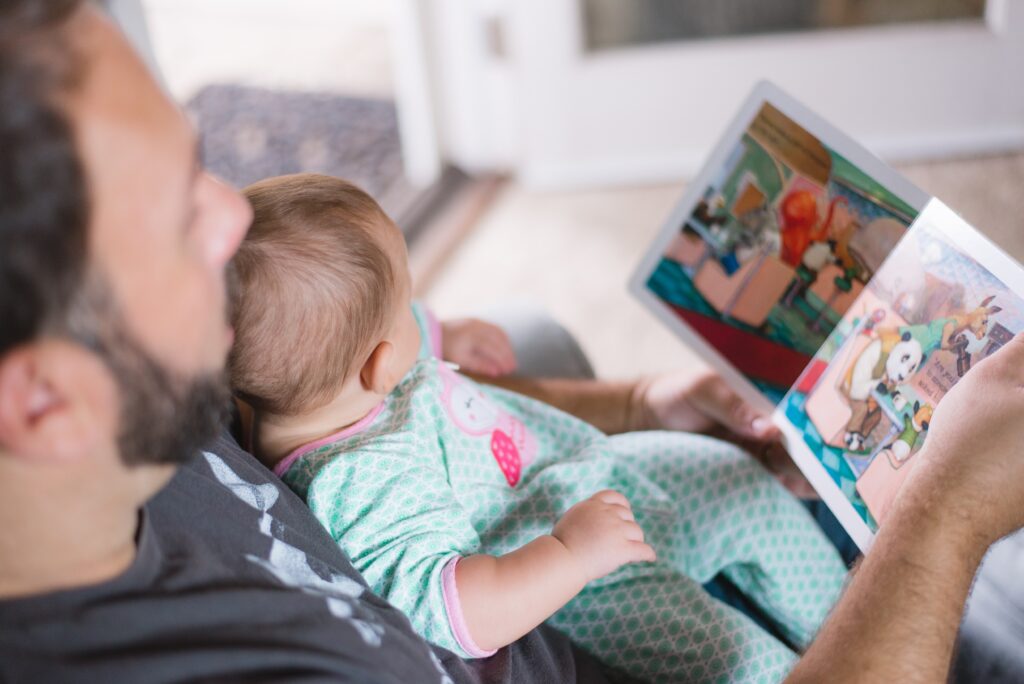
Ethical and Legal Considerations
IVF with egg donors involves ethical and legal considerations that must be carefully navigated. Some key points to consider include:
- Informed Consent: All parties involved, including the intended parents and the egg donor, must provide informed consent and have a clear understanding of the risks, procedures, and potential outcomes.
- Donor Anonymity and Rights: Depending on the jurisdiction, there may be laws and regulations governing the anonymity and rights of egg donors, including the potential for the resulting child to access information about the donor in the future.
- Legal Parentage: The legal status of the intended parents as the legal guardians or parents of the child born through IVF with egg donor may vary across different regions or countries.
- Compensation and Exploitation: There are ethical debates surrounding the appropriate compensation for egg donors and the potential for exploitation or coercion.
- Genetic Testing and Screening: Ethical considerations arise regarding the extent of genetic testing and screening performed on the egg donor and the resulting embryos, as well as the handling of any identified genetic risks or abnormalities.
Consulting with legal professionals and medical experts can help navigate these complex issues and ensure that the rights and well-being of all parties involved are protected.
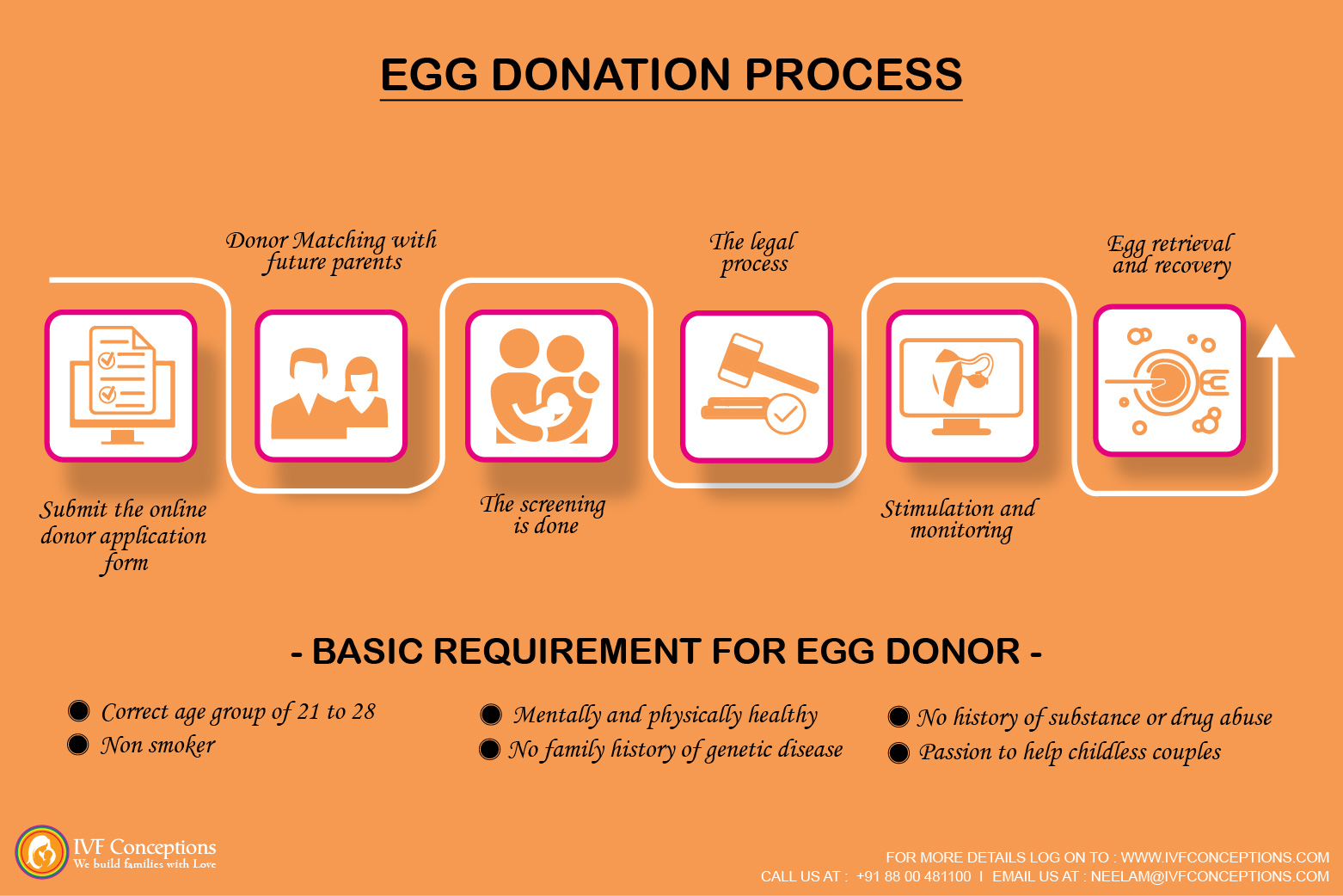
Pros and cons of using an egg donor for IVF
Pros of Using an Egg Donor:
- Increases Chances of Conception: Using a young and fertile egg donor can significantly improve the chances of successful conception and pregnancy for women with fertility issues or advanced maternal age.
- Avoids Passing on Genetic Disorders: If the intended mother carries a genetic disorder or has a family history of certain genetic conditions, using an egg donor can help avoid passing these on to the child.
- Preserves Genetic Link for Intended Father: While the child will not share a genetic link with the intended mother, using the intended father’s sperm ensures a biological connection between the child and at least one parent.
- Allows for Family Building: Egg donation provides an opportunity for individuals or couples who cannot conceive with their own eggs to have a genetically related child and build their family.
- Donor Screening: Egg donors undergo extensive medical and genetic screening, which can provide additional reassurance about the donor’s health and genetic profile.
Cons of Using an Egg Donor:
- Lack of Genetic Link for Intended Mother: The child will not share a genetic connection with the intended mother, which can be emotionally challenging for some women.
- Cost: Egg donation and the associated IVF procedures can be expensive, and the costs may not be covered by insurance in some cases.
- Legal and Ethical Considerations: There may be legal and ethical concerns regarding the rights of the donor, the intended parents, and the resulting child, which can vary across different jurisdictions.
- Emotional Impact: The process of using an egg donor can be emotionally taxing, and intended parents may experience feelings of loss, grief, or uncertainty.
- Potential Donor Anonymity Issues: Depending on the donor’s preferences and local regulations, the donor may choose to remain anonymous, which could present challenges for the child in the future if they wish to access information about their genetic origins.
- Multiple Pregnancies: There is a higher risk of multiple pregnancies (twins, triplets, etc.) with IVF using donor eggs, which can lead to additional complications and risks.
It’s important for intended parents to carefully consider these pros and cons, seek professional guidance, and make an informed decision that aligns with their values, goals, and emotional readiness.
| Pros | Cons |
| Increases chances of conception and pregnancy | Lack of genetic link for the intended mother |
| Avoids passing on genetic disorders | Expensive process (costs may not be covered by insurance) |
| Preserves genetic link for intended father | Legal and ethical considerations (varying across jurisdictions) |
| Allows for family building | Emotional impact (feelings of loss, grief, uncertainty) |
| Donor screening (medical and genetic) | Potential donor anonymity issues |
| Higher risk of multiple pregnancies (twins, triplets, etc.) |
Conclusion
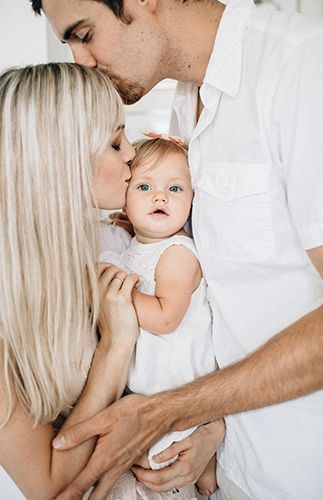 The appearance of a baby born through IVF with an egg donor is a complex interplay of genetic inheritance, environmental factors, and individual variations. While the egg donor’s genetic contribution plays a significant role in determining traits like eye color, hair color/texture, skin tone, and facial features, the intended father’s genetic makeup and the gestational environment provided by the intended mother also contribute to the baby’s overall appearance.
The appearance of a baby born through IVF with an egg donor is a complex interplay of genetic inheritance, environmental factors, and individual variations. While the egg donor’s genetic contribution plays a significant role in determining traits like eye color, hair color/texture, skin tone, and facial features, the intended father’s genetic makeup and the gestational environment provided by the intended mother also contribute to the baby’s overall appearance.
It’s important to recognize that physical resemblance is just one aspect of the parent-child relationship, and the depth of that bond is rooted in love, nurturing, and shared experiences. Embracing the uniqueness of each child and celebrating diversity within families can foster a strong sense of acceptance and love, regardless of physical similarities or differences.
As with any reproductive choice, it’s crucial for intended parents to seek professional guidance, engage in open communication, and carefully consider the ethical and legal implications of IVF with egg donors. By doing so, they can navigate this journey with a well-informed perspective and prioritize the well-being of all parties involved.
Remember, a child’s appearance is just one facet of their identity, and the love and support of their parents are the true foundations of a strong and nurturing family.
Our final thought:
As a third-party reproduction consultant, I want to emphasize that when considering IVF with an egg donor, the primary focus should be on selecting a young, healthy, and proven donor to maximize the chances of a successful pregnancy and a healthy baby. While physical traits and ethnicity can be considered, it’s important not to place too much emphasis on looks.
Even with their own eggs, intended parents cannot guarantee that the child will resemble them. Genetics and appearance are complex, and what truly matters is the love, care, and nurturing environment provided by the parents. A strong family bond is built on emotional connection, not just physical similarities.
Intended parents should prioritize finding an egg donor who increases their chances of having a healthy child. The unconditional love, guidance, and support they provide will shape the child’s well-being far more than any genetic or physical resemblance.
If you’d like to learn more about IVF, Egg Donation, or surrogacy Consulting services globally, check out the rest of our website at IVF Conceptions. We offer legally secure and affordable surrogacy consulting services for FREE.
Our team has over 14 years of experience facilitating surrogacy arrangements, egg donation, and serving as an advocacy resource for infertile couples and LGBTQ individuals seeking to build families. Till now we have helped and supported thousands of the intended parents with their family-building journey, and we can help you as well. Happy to share the references from the past IPs if needed.
If you’d like to learn more about IVF, Egg Donation, or surrogacy services globally, check out the rest of our website at Complete Surrogacy. We offer legally secure and affordable surrogacy consulting services for FREE.
Get in touch for FREE SURROGACY CONSULTING:
Mobile: +91-8800481100 ( WhatsApp, Line, Viber)
Email: neelam@ivfconceptions.com
Web: www.completesurrogacy.com
FAQs to consider if you wish to use an egg donor
 Can the baby look exactly like the intended mother if an egg donor is used?
Can the baby look exactly like the intended mother if an egg donor is used?
While it’s possible for the baby to share some physical similarities with the intended mother, it’s highly unlikely for them to look exactly alike since the intended mother’s genetic contribution is limited. The egg donor’s genetic makeup plays a more significant role in determining the baby’s appearance.
- Will the baby have any resemblance to the intended father?
Yes, the intended father’s genetic contribution can influence certain physical traits in the baby, such as height, build, and some facial features. However, the extent of resemblance may vary due to the complex interplay of genetic inheritance.
- Can the gestational environment affect the baby’s appearance?
Yes, the gestational environment provided by the intended mother’s uterus can influence the baby’s development and potentially impact certain physical traits. Factors like maternal nutrition, stress levels, and exposure to environmental toxins can contribute to variations in appearance.
- Are there any risks associated with IVF with egg donors?
Like any medical procedure, IVF with egg donor carries some risks, which may include ovarian hyperstimulation syndrome (OHSS), multiple pregnancies, ectopic pregnancy, and potential complications related to the egg retrieval or embryo transfer process. It’s crucial to discuss these risks with a healthcare professional before proceeding.
- Can the intended parents choose an egg donor based on desired physical traits?
Many egg donor agencies or fertility clinics allow intended parents to select egg donors based on certain physical characteristics, such as eye color, hair color/texture, and ethnic background. However, it’s important to have realistic expectations and understand that the resulting child’s appearance may vary due to the complex nature of genetic inheritance.

 IVF with an egg donor is a reproductive procedure where a woman’s eggs are fertilized with sperm outside the body, and the resulting embryos are transferred into the intended mother’s uterus.
IVF with an egg donor is a reproductive procedure where a woman’s eggs are fertilized with sperm outside the body, and the resulting embryos are transferred into the intended mother’s uterus.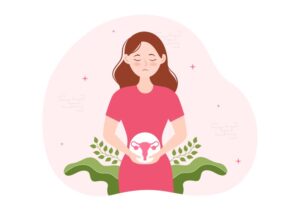 Diminished ovarian reserve: When a woman’s ovaries are unable to produce viable eggs for fertilization due to age or medical conditions.
Diminished ovarian reserve: When a woman’s ovaries are unable to produce viable eggs for fertilization due to age or medical conditions. Can the baby look exactly like the intended mother if an egg donor is used?
Can the baby look exactly like the intended mother if an egg donor is used?